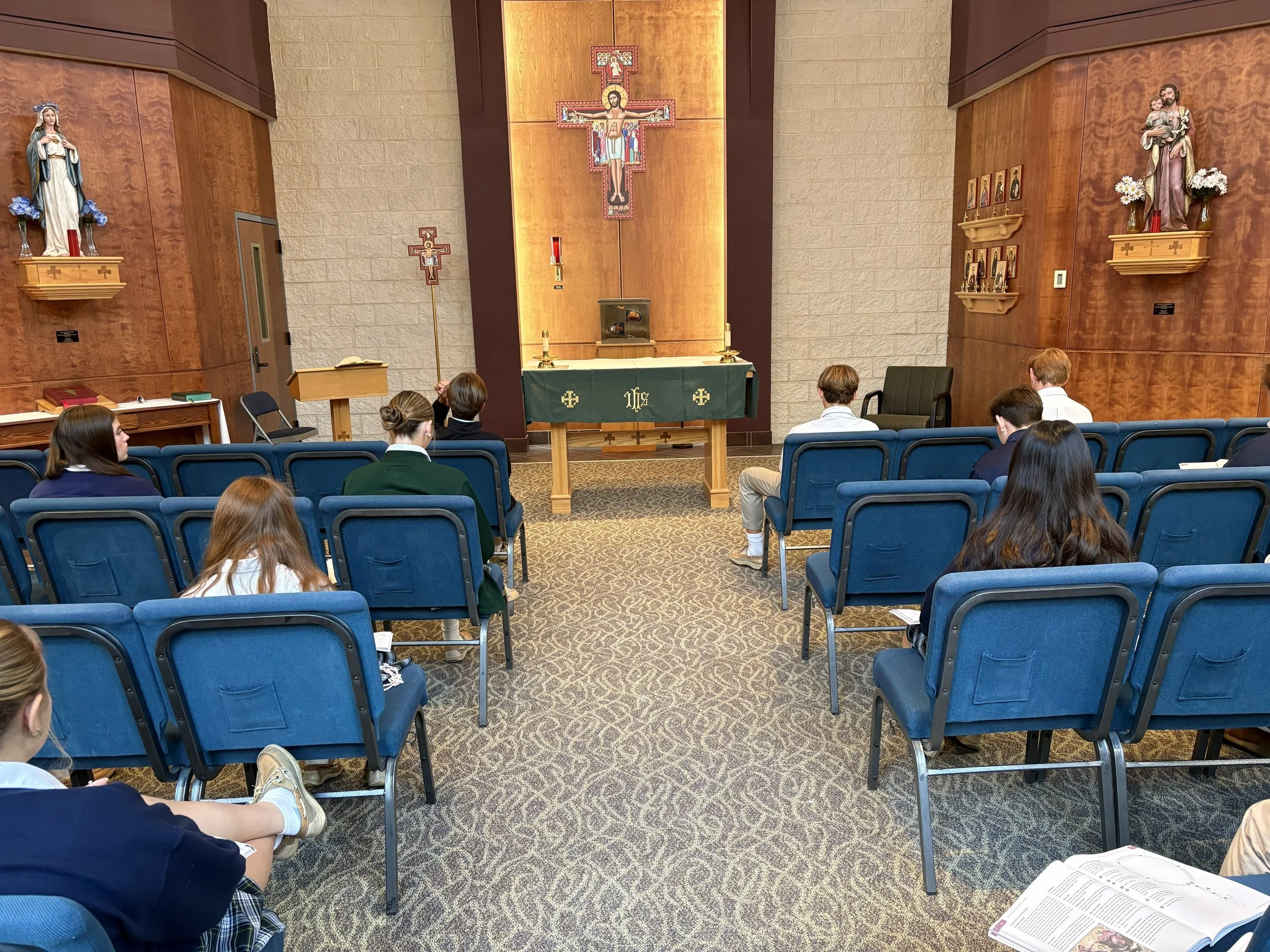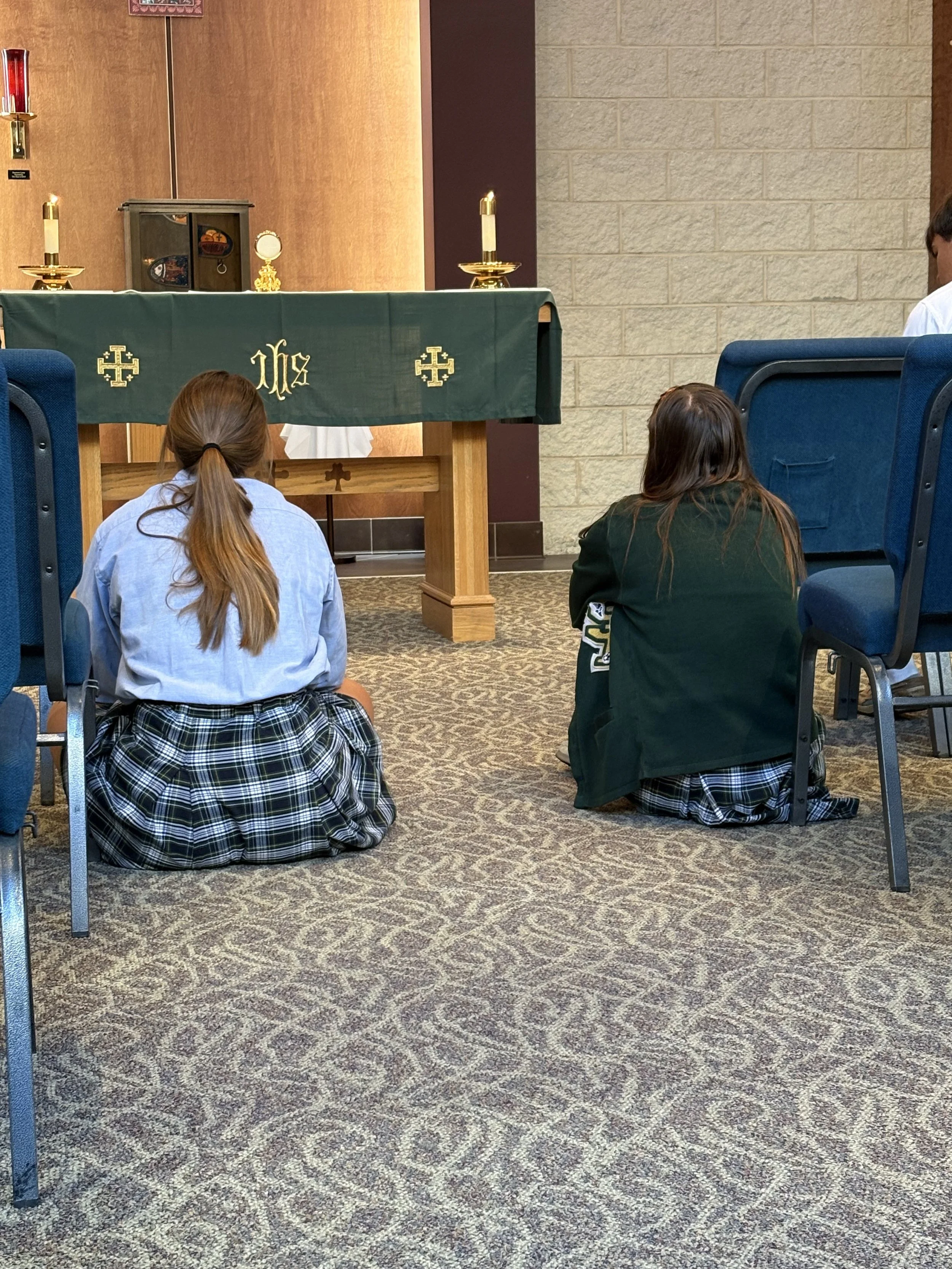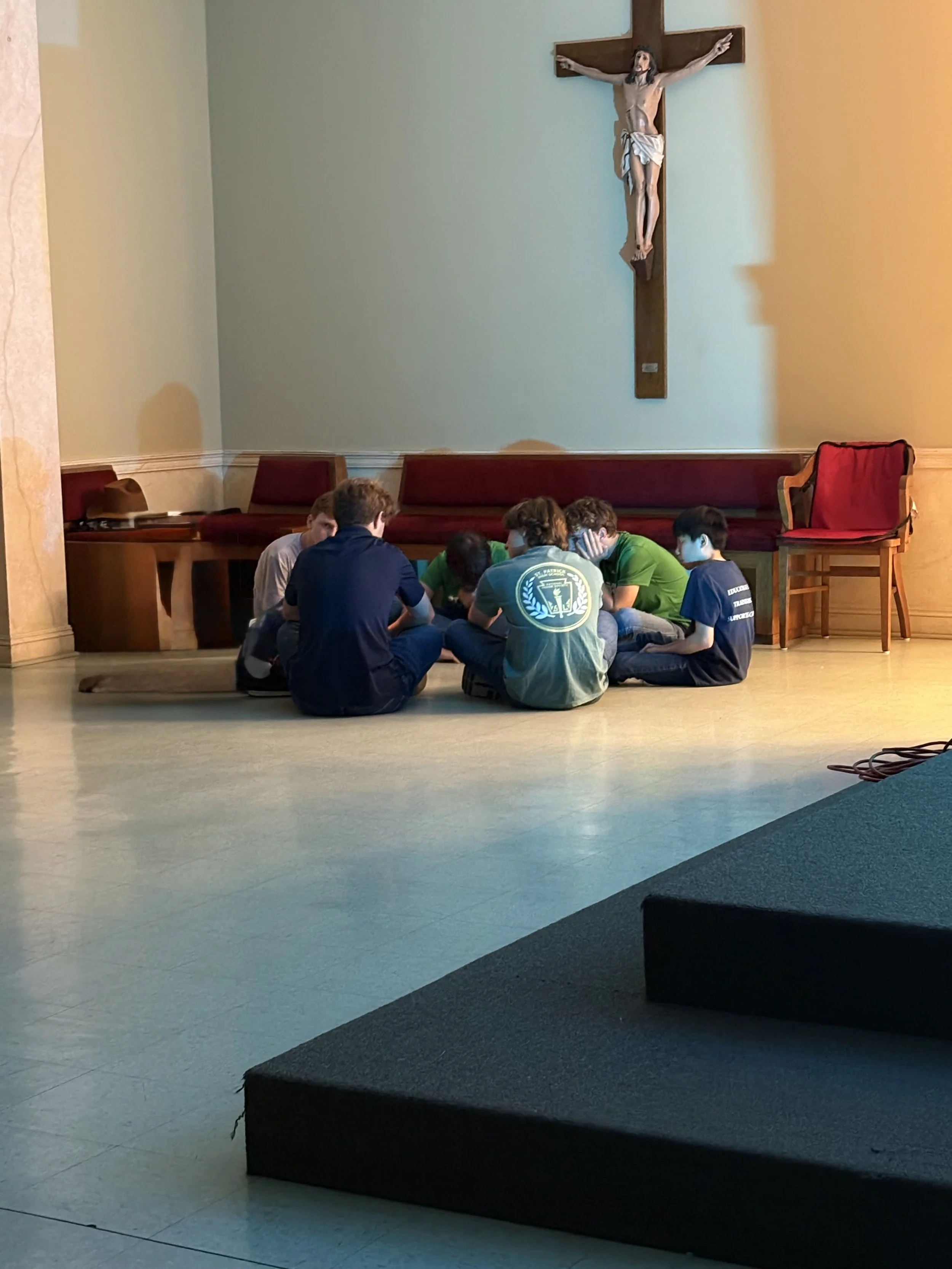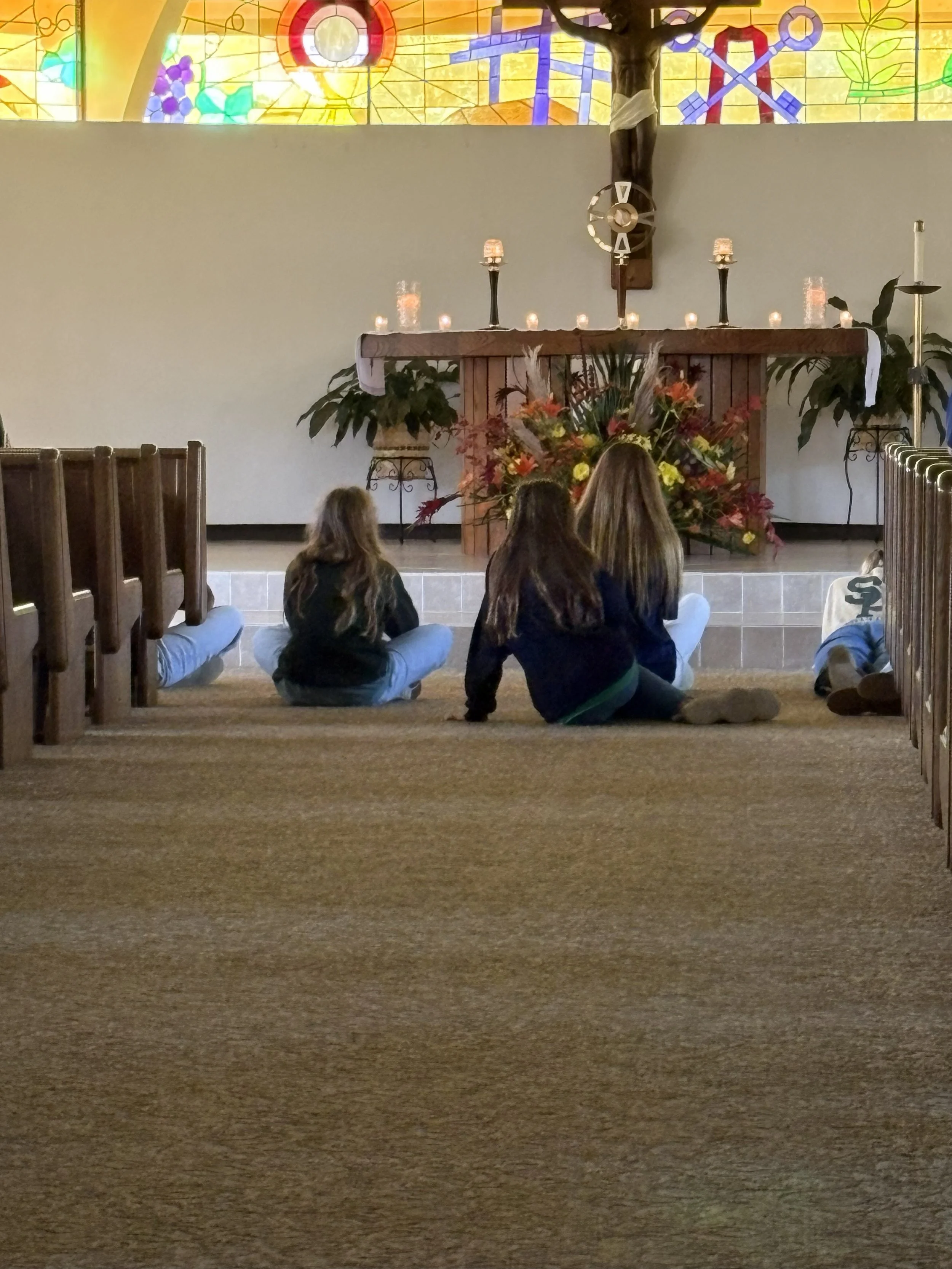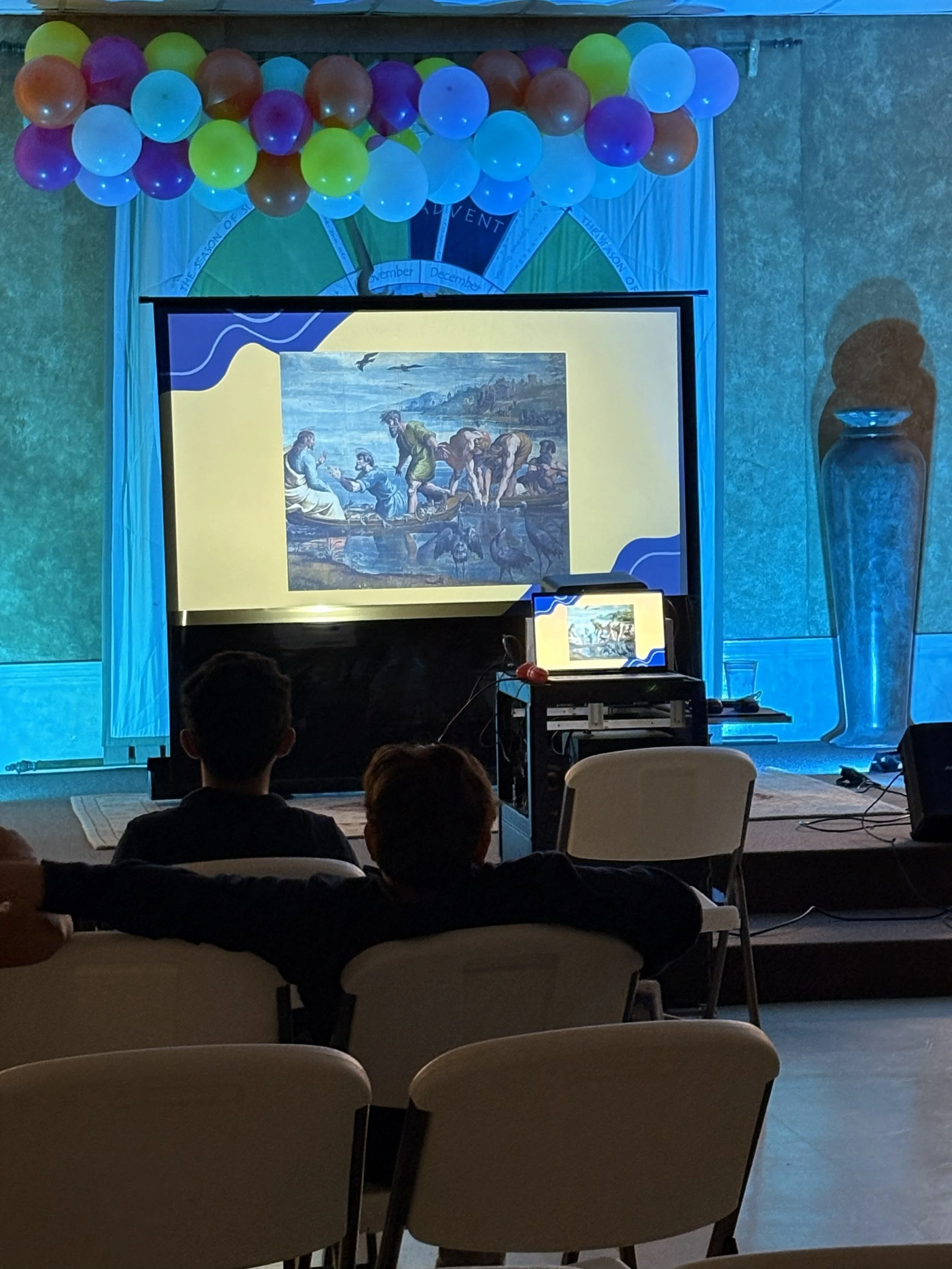Meeting Students in Love and Walking in Faith
Prayer spaces on campus invite students to make prayer a regular part of their daily routine.
“Go, therefore, and make disciples of all nations, baptizing them in the name of the Father, and of the Son, and of the Holy Spirit, teaching them to observe all that I have commanded you” (Matthew 28: 18-20).
“How do we measure success?” This was a question that was proposed at a meeting of other youth ministers and campus ministers. One of the ways that I think we see success from our work in the vineyard is when our students go on to college and are involved in their college church and ministry programs, like FOCUS. Another way is to have students who vibrantly participate in their faith at school, but more importantly in their parish and the community. Ultimately, evangelizing in Catholic schools is the core of its mission and should aim to form lifelong disciples of Jesus whose lives reflect a commitment to serve and build God’s kingdom on earth.
Meeting Students Where They Are
Sherry Weddell offers a model for conversion in her book, Forming Intentional Disciples. She describes how one goes through thresholds of faith throughout their journey to discipleship. The five thresholds of faith include initial trust, spiritual curiosity, spiritual openness, spiritual seeking, and intentional discipleship. Moving through the thresholds of faith is an act of the Holy Spirit and a person may move forward and back through these stages depending on their personal life circumstances. The role of the Campus Ministers and teachers acting as evangelists is to accompany in a way that is patient and loving.
Recognizing that students are in different places in their faith journey requires leaders to create opportunities for each stage of formation.
Initial trust - These students thrive best in small groups where they feel seen and heard. Small group leaders should be non-judgmental and encouraging of asking questions and sharing one’s own thoughts and feelings.
Spiritual Curiosity - Within the small group setting, a student who is beginning to be curious about the faith would be receptive to personal witness from someone who has had a personal conversion to the faith. Positive examples of how a life of faith has brought true happiness are essential in this stage. This can come about through conversations in the small group or even from a great homilist at a school Mass or speaker at a school assembly.
Spiritual Openness - This stage may call the student to make changes in their life which can be scary and challenging. God’s Word is ”living and effective and able to discern reflections and thoughts of the heart” (Hebrews 4:12). For this reason, allowing students to pray with Scripture and contemplate (Lectio Divina is a good option.) could play a vital role in helping a student in this stage to begin to establish a prayer routine that is repeatable and begin to form a relationship with Christ.
Spiritual Seeking - Students in this stage are actively pursuing God, so there should be opportunities for them to spend time in prayer independently. Open chapel hours and beautiful prayer spaces on campus may invite these students to take time to build on this relationship with Christ. Having books available for spiritual reading in the library or chapel may also be useful for the students to learn from the lives of saints or other spiritual mentors.
Intentional Discipleship - At this point, students have made the conscious decision to follow Christ. Their life will be a reflection of this choice. These students will accept opportunities to serve in the school, parish, and community. Making them aware of Diocesan retreats and events will help them connect with the larger Church. These students will be the peer ministers and spiritual leaders in your school and it’s important that they have these opportunities to serve.
For more information about the thresholds have faith and how to minister to the different stages of faith, I highly recommend reading Forming Intentional Disciples: The Path to Knowing and Following Jesus by Sherry Weddell.
Retreats ~ Taking Time Away
Retreats can offer a great opportunity for students to experience all of these stages in one space in a limited amount of time. Because establishing trust can take longer for some students, there should be various team building activities and games to intermittently lighten the mood. Prayer experiences may need to be kept short for day retreats with guidance on continuing these methods on their own at home. Mass or Eucharistic Adoration are central to any school retreat and leaders should provide handouts with prayers, readings, and songs to encourage participation. Leaders should never assume that students know what to do or how to pray.
Becoming Catholic
Catholic schools should always welcome students of different faith backgrounds. It’s what Jesus did and what He meant when He said, “Let the children come to me, and do not prevent them; for the kingdom of heaven belongs to such as these” (Matthew 19:14). As stated in the Catechism of the Catholic Church, "the Church knows that she is joined in many ways to the baptized who are honored by the name Christian, but do not profess the Catholic faith in its entirety," however, there are those who wish to join in the full celebration of the Lord's Eucharist (CCC 838), and it is important to offer this opportunity to students who desire to enter into full communion with the Catholic Church.
The Catholic Church is filled with God’s beauty and goodness. When we share our faith, it is attractive. There will be students who will have the desire to become Catholic. After many years of prayer and discernment, I received the blessing of our Diocesan Bishop and school chaplain to start an Order of Christian Initiation of Adults, or OCIA, program at school for our students. Students are learning the Catholic faith every day in theology classes. OCIA is a way to walk with students and build a relationship that provides a safe place to ask questions and grow in a deepening understanding of the Catholic faith. Our first year to offer OCIA, we accompanied eight students and welcomed them into the Catholic Church.
The Rite of Election was celebrated at school.
The Heartbeat of Our Mission
Evangelization in our Catholic schools is not a checklist, but rather the heartbeat of our mission. In prayer groups, encounter experiences, retreats, and in the halls, we meet students where they are and accompany them on their faith journey. As campus ministers, it is our call to witness Christ’s love in ways that invite authentic encounter in every aspect of life from relationships to the liturgy. The Holy Spirit is at work in our schools if we give Him the space to move and transform the hearts of our students. May we continue to plant the seeds of faith and trust that God will allow them to bloom in His time.



